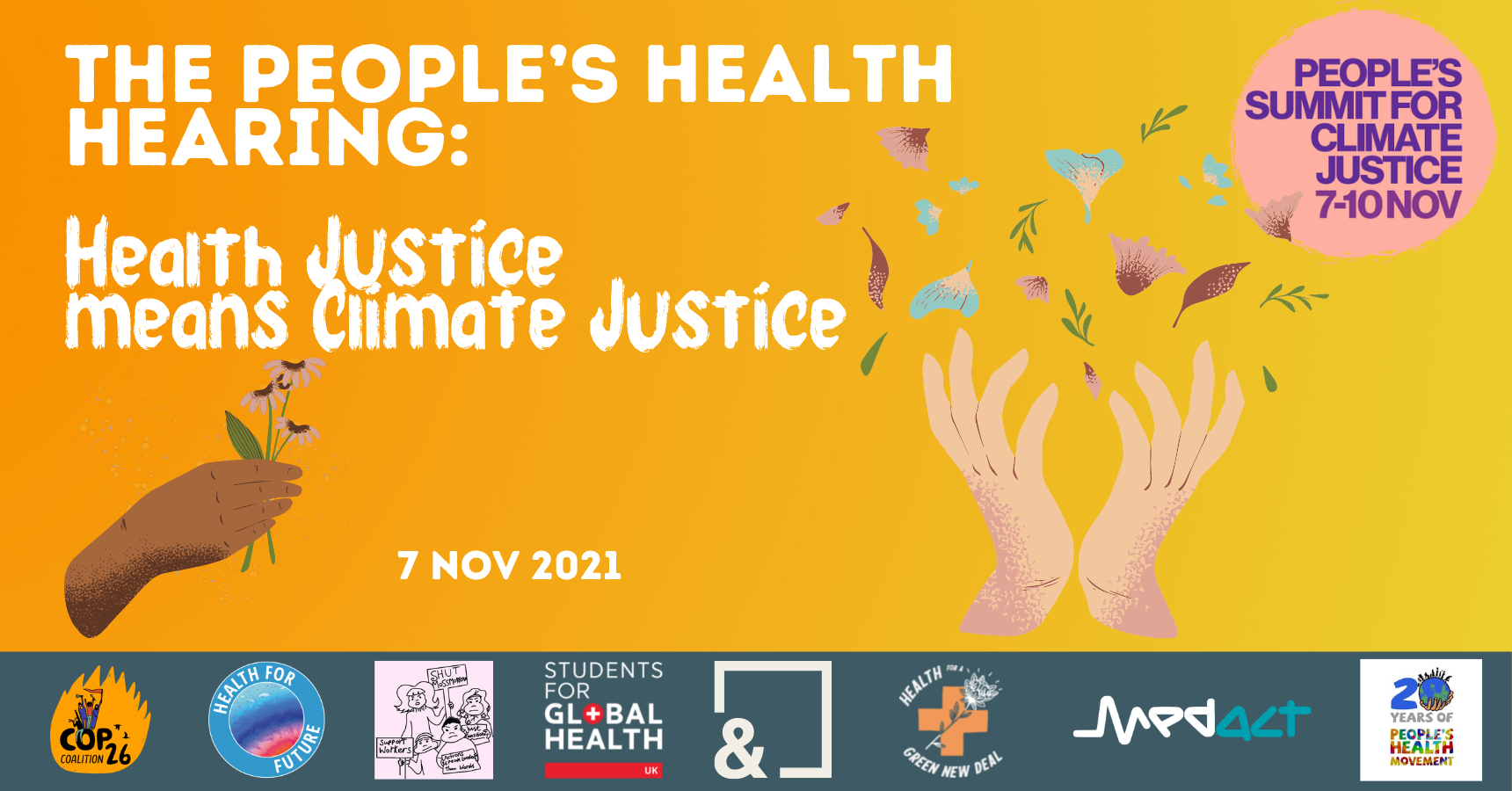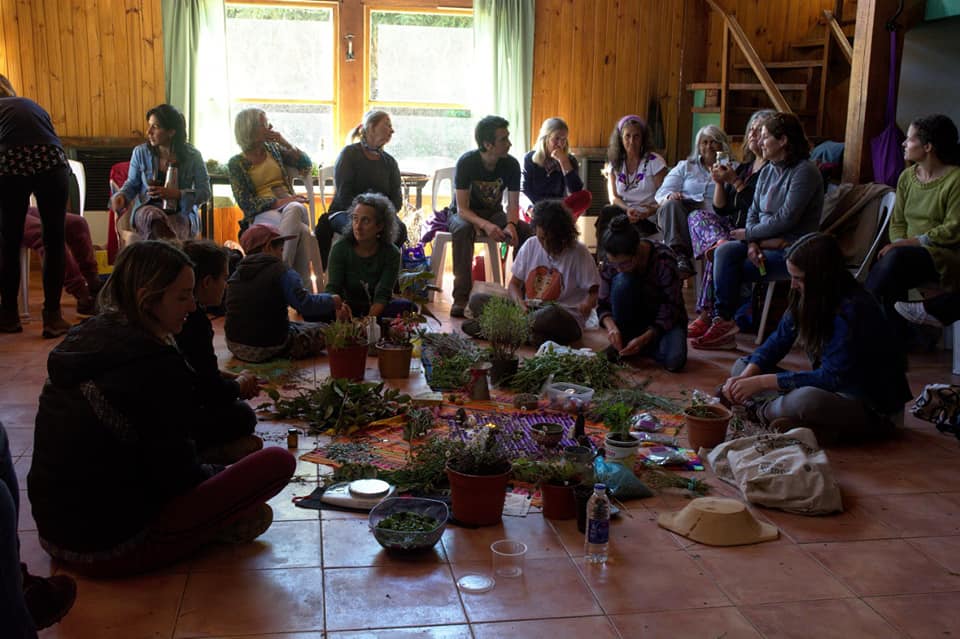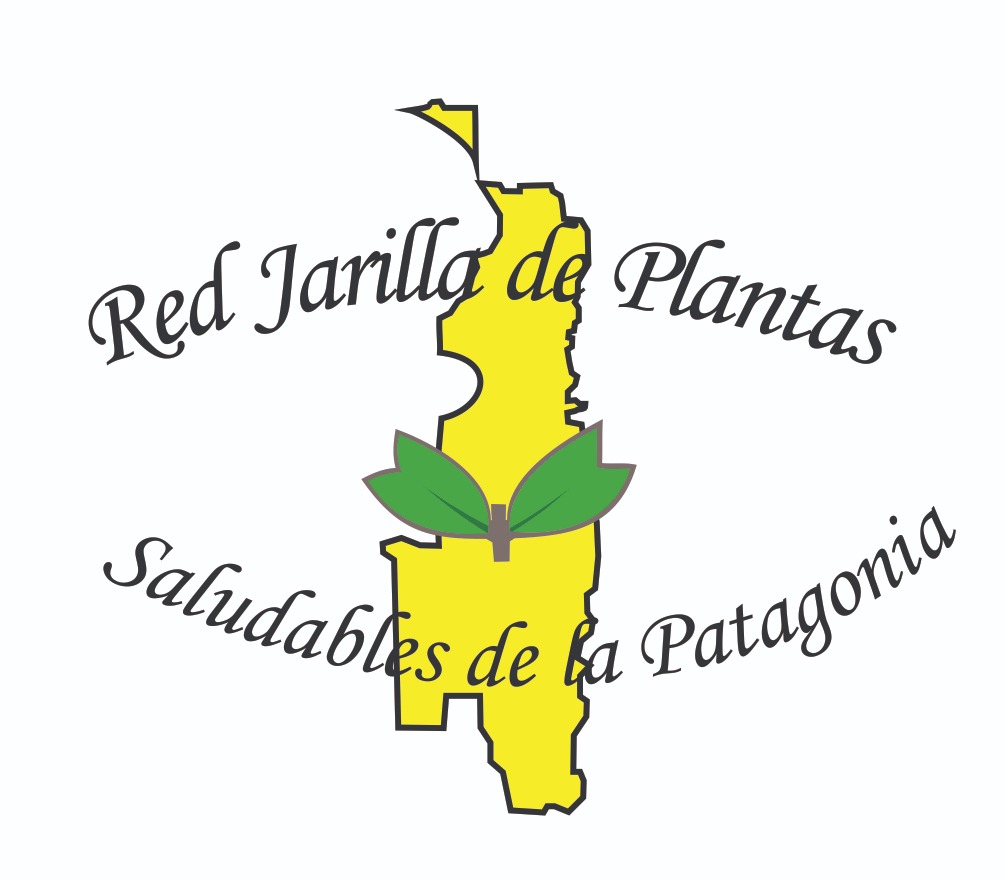
On Sunday 7th November, whilst the 26th Conference of Parties was taking place, we came together as part of the People’s Summit for Climate Justice for The People’s Health Hearing. More than 100 people joined from across the world came together online to bear witness to the public health impacts of climate violence, share stories of resistance and set out visions for health and climate justice.
You can now watch all the sessions from The People’s Health Hearing in English and Spanish and explore all the testimonies that were shared as part of the online gallery.
-
Submitted by Ilham Rawoot, Justiça Ambiental/Friends of the Earth MozambiqueAfrica, Cape Town, South Africa

-
Submitted by Paco Chuji Gualinga & Jorge Lozano Morocho , n/aEcuador, Ecuador & Azuay-Pastaza Provinces, Sucumbios Province

-
Submitted by Marcalee Alexander, The Journal of Climate Change and HealthBirmingham Alabama, USADay for Tomorrow – Sustain Our Abilities | People's Health Hearing
This video portrays people with disabilities from three continents, and professionals working in rehabilitation. It introduces the idea of the “Day for Tomorrow” as a sister to earth day.
www.journals.elsevier.com/the-journal-of-climate-change-and-health

-
Submitted by ActionAid InternationalChingola, Zambia

-
Submitted by Julie Coombes Tricia Hazeleger Dr Elizabeth Orr, Eastern Domestic Violence Outreach Service, School of Social Work, Monash University, Department of Social Work, School of Health Sciences University of Melbourne.Australia, Canada, New Zealand

-
Submitted by Red Jarilla de Plantas Saludables de la PatagoniaArgentina, South America

-
Submitted by Nightingale Wakigera, ACOPPHE, CHIPKenya

-
Submitted by Veronica Derek Cabe , Nuclear/Coal-Free Bataan MovementBataan, Philippines

-
Submitted by Marjorie Jobson, Khulumani Support GroupAfrica, Kroondal, South Africa



